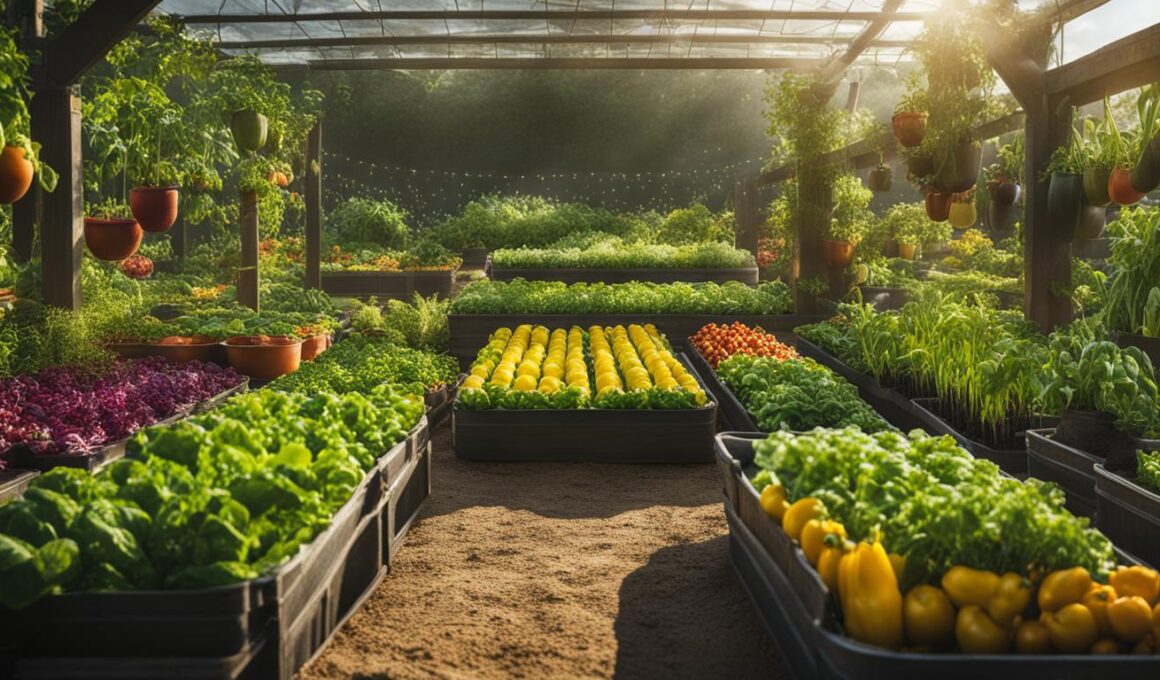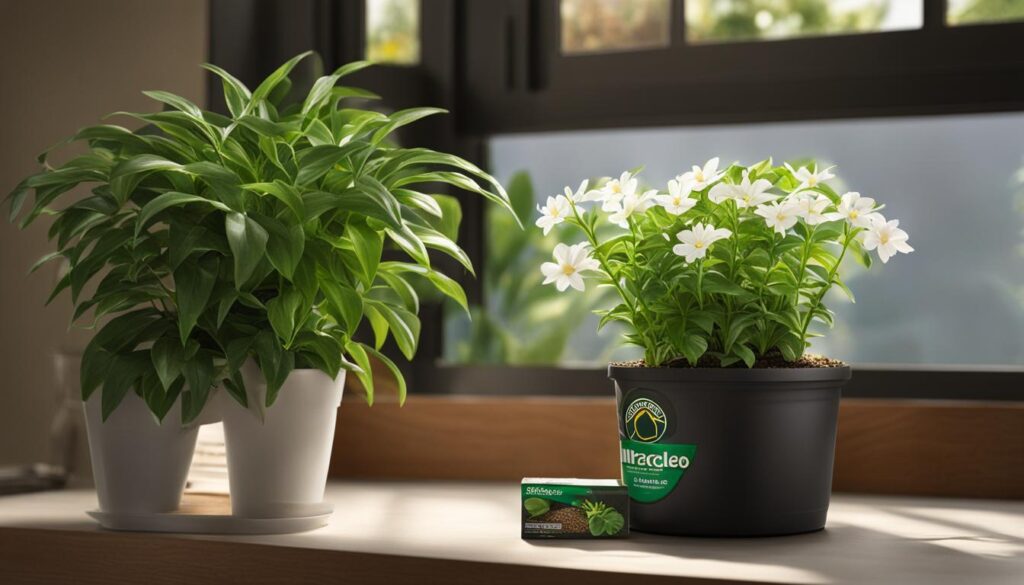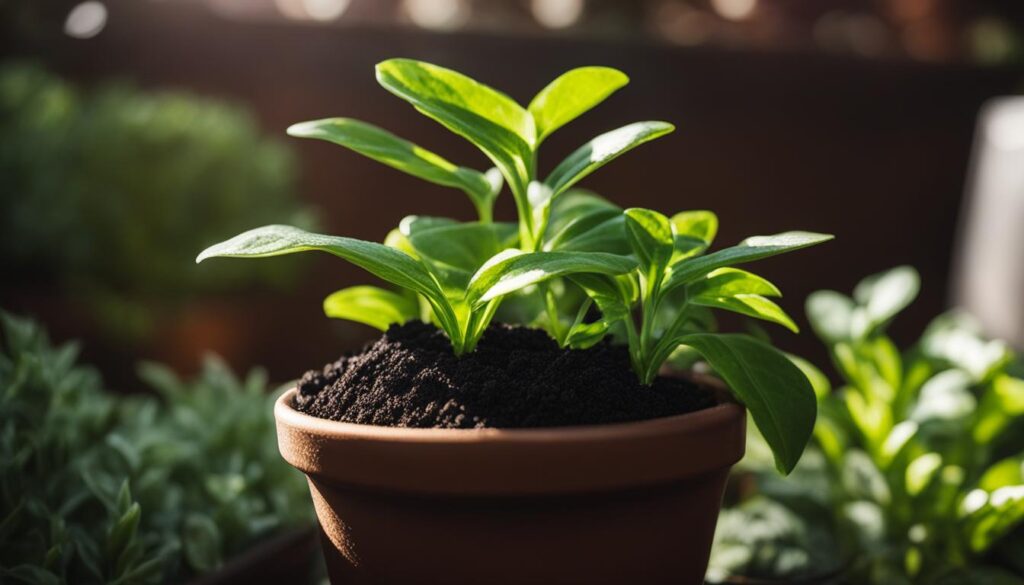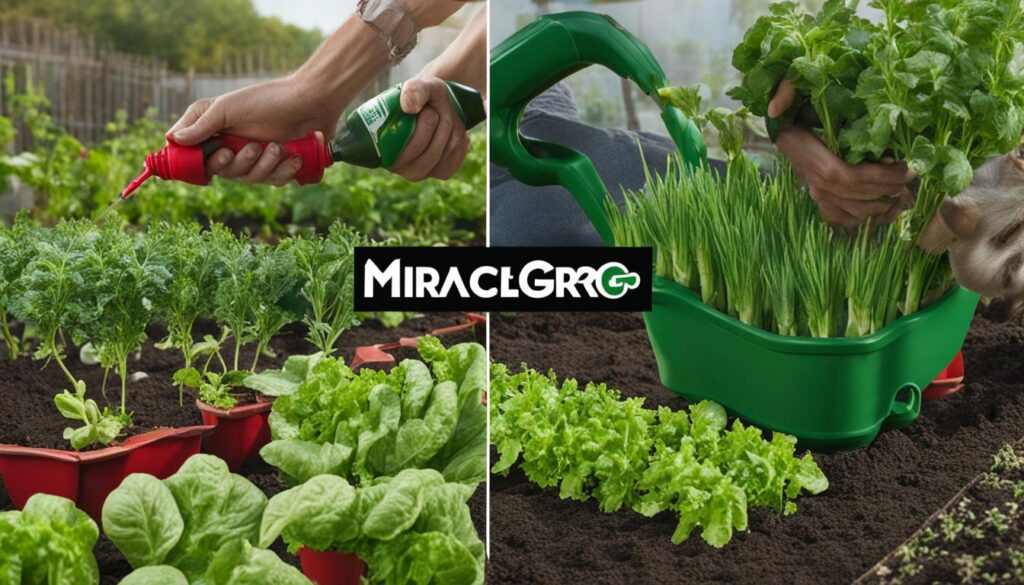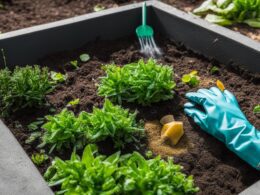When it comes to cultivating a thriving vegetable garden, choosing the right fertilizer is crucial. One popular brand that often comes to mind is Miracle-Gro. But, is Miracle-Gro truly beneficial for your vegetables and your organic gardening practices? Let’s dive in and examine the facts.
Post Summary
- Miracle-Gro is a widely available synthetic fertilizer for gardening.
- Synthetic fertilizers can have negative effects on soil life and the overall garden ecosystem.
- Understanding the differences between synthetic and organic fertilizers is essential.
- Miracle-Gro contains essential nutrients for plant growth but may not be suitable for long-term soil health.
- Consider organic fertilizers made from natural sources for sustainable vegetable gardening.
The Difference Between Synthetic and Organic Fertilizers
Synthetic fertilizers, such as Miracle-Gro, and organic fertilizers are two distinct types of fertilizers with different compositions and effects on the garden ecosystem. Understanding these differences is essential for making informed decisions about which fertilizer to use in your garden.
Synthetic fertilizers are chemical-based fertilizers that are commercially manufactured. They are typically made from petroleum-based products and contain concentrated amounts of nitrogen, phosphorus, and potassium, commonly referred to as NPK. These fertilizers provide plants with immediate and easily accessible nutrients, promoting rapid growth. However, excessive use of synthetic fertilizers can harm the garden ecosystem by disrupting the natural balance of nutrients, negatively impacting soil health, and reducing beneficial microbial activity.
Organic fertilizers, on the other hand, are derived from natural sources, such as compost, animal manure, and plant materials. These fertilizers release nutrients slowly and steadily, providing a more balanced and sustainable source of nourishment for plants. They also improve soil structure and fertility over time, enhancing the overall health of the garden ecosystem. Organic fertilizers contribute to the growth of beneficial microorganisms that aid in nutrient cycling and promote overall soil health.
Using synthetic fertilizers, like Miracle-Gro, can offer quick results, but they may have long-term negative impacts on the soil and the overall health of your garden. Organic fertilizers, on the other hand, provide a more sustainable and environmentally friendly option, supporting the long-term health and resilience of your garden ecosystem.
When deciding which type of fertilizer to use, it is crucial to consider the specific needs of your plants, the overall health of your garden, and your gardening practices. Both synthetic and organic fertilizers have their pros and cons, and the choice ultimately depends on your gardening goals and values.
Take the time to research and understand the potential impacts of synthetic fertilizers like Miracle-Gro, and consider incorporating organic fertilizers into your gardening routine to support a thriving and sustainable garden ecosystem.
For outdoor plants, Miracle-Gro offers various options, including liquid fertilizers and soil amendments. These products can be used to enrich the soil and provide essential nutrients that may be lacking. Whether you have flowers, shrubs, or trees in your garden, Miracle-Gro can help improve their overall health and vitality.
If you are growing edible plants, such as fruits and vegetables, Miracle-Gro can also play a role in supporting their growth. The brand offers specialized formulas, such as their plant food for tomatoes and vegetables, which provide the nutrients necessary for robust harvests. However, it is crucial to follow the recommended application rates and not to over-fertilize your edible plants, as excessive use of synthetic fertilizers can have negative impacts on the soil and the environment.
The Nutritional Content of Miracle-Gro
Miracle-Gro is a popular synthetic fertilizer that provides essential nutrients for plant growth. Understanding its nutritional content can help gardeners make informed decisions about its use. Let’s take a closer look at the essential nutrients found in Miracle-Gro:
| Nutrient | Function |
|---|---|
| Urea Nitrogen | A fast-acting source of nitrogen that promotes foliage growth in plants. |
| Potassium Phosphate | Provides potassium and phosphorus, essential for root development and flowering. |
| Trace Elements | Contribute to overall plant health and play a vital role in various metabolic processes. |
The urea nitrogen present in Miracle-Gro ensures quick nutrient uptake by plants, helping them thrive. It stimulates green growth and enhances the overall appearance of foliage. Meanwhile, potassium phosphate supports root development, improving the plant’s ability to absorb water and nutrients from the soil. Phosphorus also aids in flower and fruit production, resulting in vibrant blooms and bountiful harvests.
Additionally, Miracle-Gro contains trace elements that are essential for plant health, such as iron, zinc, and manganese. These micronutrients play a crucial role in various metabolic processes, ensuring optimal growth and preventing nutrient deficiencies. Overall, Miracle-Gro provides a balanced mix of essential nutrients that facilitate healthy plant growth and development.
It’s important to note that while Miracle-Gro offers convenience and quick results, organic fertilizers made from natural sources like compost provide a more sustainable and long-term approach to nourishing plants. Understanding the nutritional content of different fertilizers empowers gardeners to make choices that align with their gardening goals and values.
The Pros and Cons of Miracle-Gro
Miracle-Gro, like any product, has its pros and cons when it comes to gardening. Let’s take a closer look at the advantages and disadvantages of using this popular synthetic fertilizer.
Pros of Miracle-Gro
- Convenience: Miracle-Gro is widely available and easy to use, making it a convenient choice for gardeners.
- Effective Nutrient Delivery: This fertilizer provides essential nutrients like nitrogen, phosphorus, and potassium that promote plant growth and health.
- Quick Results: Miracle-Gro’s fast-acting formula means you’ll see visible improvements in your plants in a short period of time.
Cons of Miracle-Gro
- Synthetic Nature: Miracle-Gro is a synthetic fertilizer, meaning it is chemically manufactured rather than derived from natural sources.
- Potential Harm to Soil Life: Synthetic fertilizers can harm the beneficial microorganisms in the soil, disrupting the natural balance and nutrient cycling processes.
- Environmental Impacts: The production and use of synthetic fertilizers contribute to CO2 emissions and water pollution, impacting the overall health of the environment.
It’s important to weigh the pros and cons of using Miracle-Gro in your gardening practices. While it offers convenience and quick results, its synthetic nature and potential harm to soil life and the environment may be a concern for some gardeners. Organic alternatives made from natural sources provide long-term benefits to the soil and overall plant health, making them a preferred choice for those practicing organic gardening.
Conclusion
After exploring the question of whether Miracle-Gro is good for vegetables, it is clear that there are both pros and cons to using this synthetic fertilizer. While Miracle-Gro provides essential nutrients and can promote healthy plant growth, its synthetic nature raises concerns about its impact on soil life, the environment, and human health. For those practicing organic gardening and prioritizing long-term soil health, organic fertilizers made from natural sources may be a better choice.
Organic fertilizers, such as compost, animal manure, and plant byproducts, support the growth of beneficial microorganisms and contribute to a healthy garden ecosystem. They provide nutrients to the soil and promote natural nutrient cycling processes. Using organic fertilizers can help maintain the overall health of the soil and reduce the risk of water pollution and CO2 emissions associated with synthetic fertilizers.
While it may be tempting to rely on convenient and effective options like Miracle-Gro, it is important to consider the long-term effects on your garden and the environment. Conduct further research and understand the effects of different fertilizers to make informed decisions about what is best for your vegetable garden and overall gardening practices.
FAQ
Is Miracle-Gro safe for vegetable gardening?
Miracle-Gro can be used in vegetable gardening, but its synthetic nature and potential impact on soil and the environment should be considered.
What is the difference between synthetic and organic fertilizers?
Synthetic fertilizers are made with chemical compounds, while organic fertilizers are made from natural sources like compost and animal manure.
Does Miracle-Gro harm human health and the environment?
The chemicals in Miracle-Gro, along with the runoff from synthetic fertilizer factories, can have negative effects on human health and contribute to water pollution and CO2 emissions.
How do synthetic fertilizers impact soil microorganisms?
Synthetic fertilizers disrupt the natural nutrient cycling processes in soil, inhibiting the activity of beneficial microorganisms and potentially reducing soil health.
Can Miracle-Gro be used on different types of plants?
Yes, Miracle-Gro can be used on various types of plants including indoor, outdoor, and edible plants.
What nutrients does Miracle-Gro provide?
Miracle-Gro contains nitrogen, phosphorus, and potassium, along with trace elements, which support plant growth and health.
What are the pros and cons of using Miracle-Gro?
Miracle-Gro is a convenient and effective fertilizer, but concerns exist regarding its synthetic nature and potential harm to soil life and the environment.
Should I choose Miracle-Gro for organic gardening?
Organic gardeners may prefer to use organic fertilizers made from natural sources, as they provide long-term benefits to soil health.
Can I Use Acidifying Soil Additives Like Miracle-Gro on my Vegetables?
Yes, you can use acidifying soil additives like Miracle-Gro on your vegetables. However, it’s essential to follow specific tips for acidifying soil to ensure the best results. Make sure to carefully read and follow the instructions on the product label and use it in moderation to avoid oversaturating the soil.





